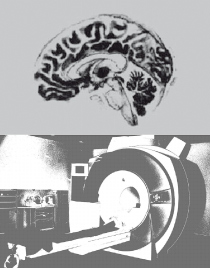The Neuroimaging Center (NIC) is a core research platform of Focus Program Translational Neuroscience Mainz (FTN) and of Johannes Gutenberg University Medical Center Mainz. We are member of the Rhine-Main Neuroscience Network (rmn²), a strategic research alliance formed by neuroscientists in Frankfurt and Mainz.
We provide support in key methods of human systems and cognitive neuroscience, incl. neuroimaging, EEG and non-invasive neurostimulation, to all interested parties within the regional neuroscience community.
The NIC is housed since 2020 in a new research building (1500 m²). Facilities include a research-only 3T MRI scanner (Siemens PRISMA), equipment for peripheral stimulation, psychophysiological recordings and eye-tracking, two fully equipped psychophysiological laboratories for behavioral studies, two EM-shielded EEG recoding chambers and sleep labs, MR-compatible 64- and 128-channel EEG systems, and three fully equipped neurostimulation labs. Correlative MRI, fMRI, EEG, and concurrent EEG-fMRI approaches are complemented with causal neuromodulation techniques, such as neuronavigated transcranial magnetic stimulation (TMS), transcranial electric stimulation (tES), and transcranial ultrasound stimulation (TUS). A particular methodological focus is on the automation and integration of neurostimulation with neuroimaging techniques, such as concurrent TMS-fMRI, real-time closed-loop TMS-EEG, and robot-navigated TMS and TUS.
Data analysis is supported by dedicated Linux and Windows servers, access to the University’s high-performance computing facility (Mogon), analysis software, and an office suite with terminals for data analysis.
Services include regular methods teaching activities (NIC courses), advice with study design, ethics applications, stimulus presentation, sequence selection, and data analysis; and bi-weekly discussion and project presentation meetings (NIC meetings, see “Aktuelles” for upcoming meetings).
We are proud to support
DFG Collaborative Research Center CRC-TR128 on Multiple Sclerosis
Competence Network Multiple Sclerosis (KKNMS)
Mainz Resilience Project (MARP)
Leibniz Institute for Resilience Research (LIR)
EU Horizon 2020 project “DynaMORE” (Dynamic MOdelling of REsilience)





